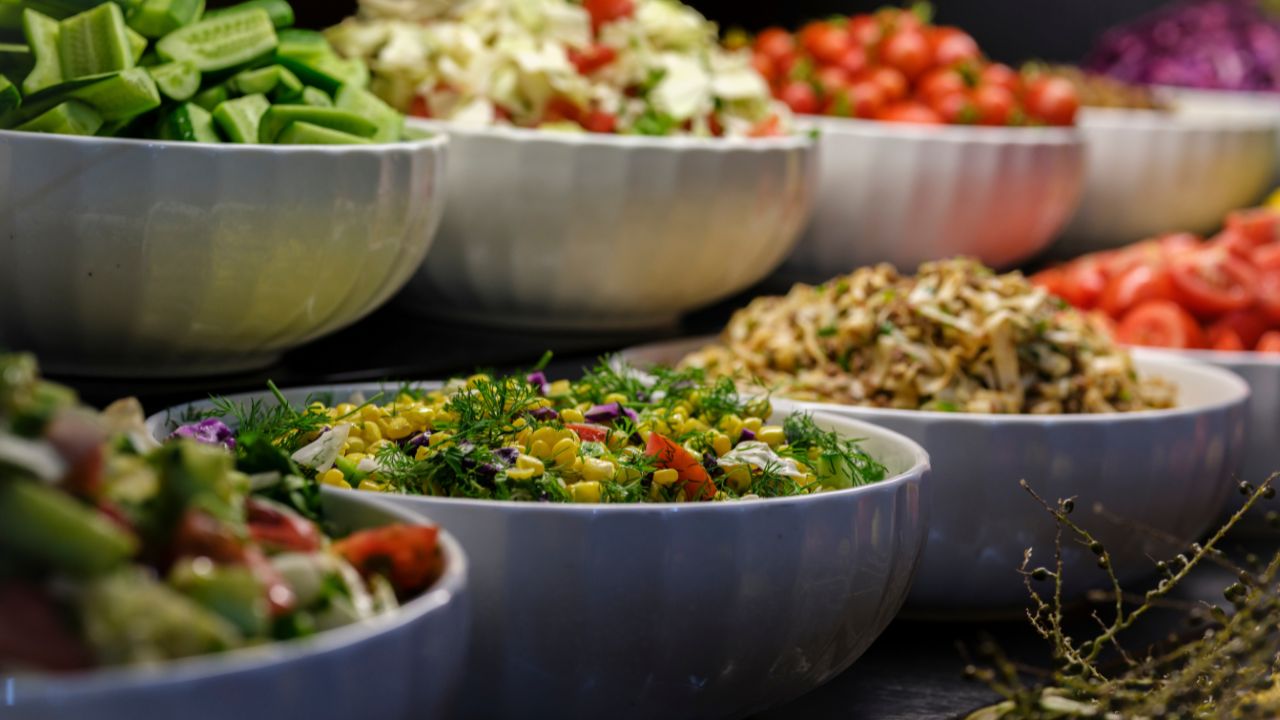
The Importance of Proper Nutrition for Muscle Recovery
After an intense workout, your muscles are in a state of repair and recovery. Providing your body with the right nutrients is crucial for optimizing this process and ensuring that you can get back to your training routine as quickly as possible. In this article, we will explore the key foods that help with muscle recovery and how they can benefit your post-workout nutrition plan.
Protein: The Building Block of Muscle
Protein is essential for muscle recovery and growth. During exercise, your muscles undergo small tears and damage, which need to be repaired for them to grow stronger. Consuming adequate amounts of protein after a workout provides your body with the amino acids necessary to rebuild and repair these muscle fibers.
Some excellent sources of protein include:
- Lean meats like chicken, turkey, and beef
- Fish, particularly salmon and tuna
- Eggs
- Dairy products like cottage cheese and Greek yogurt
- Plant-based sources such as tofu, tempeh, and legumes
Aim to consume around 20-30 grams of protein within 30 minutes to an hour after your workout for optimal muscle recovery.
Carbohydrates: Fueling Your Muscles
Carbohydrates are another crucial component of post-workout nutrition. During exercise, your body depletes its glycogen stores, which are the primary fuel source for your muscles. Consuming carbohydrates after a workout helps replenish these glycogen stores, providing your muscles with the energy they need to recover and grow.
Good sources of post-workout carbohydrates include:
- Whole grains like brown rice, quinoa, and oats
- Fruits such as bananas, berries, and apples
- Starchy vegetables like sweet potatoes and squash
- Legumes such as lentils and chickpeas
Pairing your protein with a source of carbohydrates can enhance muscle recovery and promote muscle growth.
Antioxidants: Reducing Inflammation and Oxidative Stress
Exercise can lead to increased inflammation and oxidative stress in the body, which can hinder muscle recovery. Antioxidants help combat these effects by neutralizing free radicals and reducing inflammation. Incorporating antioxidant-rich foods into your post-workout meal can support muscle recovery and overall health.
Some excellent sources of antioxidants include:
- Berries like blueberries, raspberries, and strawberries
- Leafy greens such as spinach and kale
- Nuts and seeds like almonds, walnuts, and chia seeds
- Colorful vegetables such as bell peppers, beets, and carrots
Omega-3 Fatty Acids: Supporting Muscle Health
Omega-3 fatty acids are essential for maintaining muscle health and reducing inflammation. These healthy fats can help alleviate muscle soreness and stiffness, promoting a faster recovery after intense workouts.
Good sources of omega-3 fatty acids include:
- Fatty fish like salmon, mackerel, and sardines
- Flaxseeds and chia seeds
- Walnuts
- Algae-based omega-3 supplements for vegans and vegetarians
Incorporating these foods into your post-workout meal or as part of your regular diet can support muscle recovery and overall health.
Electrolytes and Hydration: Replenishing What You've Lost
During exercise, your body loses electrolytes through sweat, which can lead to dehydration and impaired muscle function. Replenishing these electrolytes and staying hydrated is crucial for optimal muscle recovery.
Some good sources of electrolytes include:
- Coconut water
- Bananas
- Watermelon
- Sports drinks (in moderation)
In addition to electrolyte-rich foods, be sure to drink plenty of water before, during, and after your workouts to maintain proper hydration.
Vitamins and Minerals: Supporting Overall Health and Recovery
Certain vitamins and minerals play important roles in muscle recovery and overall health. For example, vitamin C helps in the production of collagen, which is essential for maintaining healthy connective tissues. Zinc is crucial for protein synthesis and muscle repair, while magnesium helps regulate muscle and nerve function.
Incorporating a variety of nutrient-dense foods into your diet can help ensure that you are getting the essential vitamins and minerals needed for optimal muscle recovery. Some excellent sources include:
- Citrus fruits and bell peppers for vitamin C
- Oysters, lean meats, and legumes for zinc
- Leafy greens, nuts, and seeds for magnesium
Putting It All Together: A Sample Post-Workout Meal
Now that we've explored the key foods that help with muscle recovery, let's put it all together into a sample post-workout meal:
- Grilled chicken breast (protein)
- Sweet potato (carbohydrates)
- Steamed broccoli (antioxidants)
- Spinach salad with walnuts and a drizzle of olive oil (omega-3s, vitamins, and minerals)
- A glass of coconut water (electrolytes and hydration)
This well-rounded meal provides your body with the essential nutrients needed to support muscle recovery and promote overall health.
Conclusion
Proper nutrition is crucial for optimizing muscle recovery after intense workouts. By incorporating foods rich in protein, carbohydrates, antioxidants, omega-3 fatty acids, electrolytes, and essential vitamins and minerals, you can support your body's natural recovery processes and get back to your training routine faster. Remember to listen to your body, stay hydrated, and fuel your muscles with the nutrients they need to thrive.
 Mobility trainingHome Fitness RecoverySports Injury PreventionPersonal Physical TherapyOrthopedic SolutionsPrivacy PolicyTerms And Conditions
Mobility trainingHome Fitness RecoverySports Injury PreventionPersonal Physical TherapyOrthopedic SolutionsPrivacy PolicyTerms And Conditions
